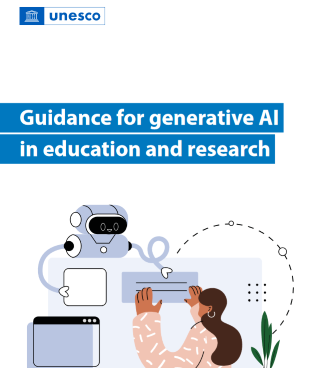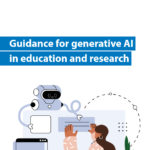
UNESCO’s guidance for generative AI (GenAI) in education and research aims to help countries implement immediate actions, plan long-term policies and develop human capacity to ensure a human-centred vision of these new technologies.
- The rapid emergence of publicly available GenAI tools and the slow adaptation of regulatory frameworks leave privacy and educational institutions vulnerable.
- The guide assesses the potential risks of GenAI to humanistic values, advocating for human agency, inclusion, equity, gender equality, and the protection of linguistic and cultural diversity and pluralism of opinion.
- It recommends steps for public authorities to regulate the use of GenAI, including the protection of privacy and the possible setting of age limits for use.
- GenAI providers are urged to meet ethical and pedagogical requirements to ensure that their tools are appropriate for educational settings.
- Educational institutions are encouraged to validate GenAI systems for their ethical and pedagogical suitability, reflecting on the long-term implications of GenAI for knowledge, teaching, learning and assessment.
- Concrete recommendations are provided for policy makers and educational institutions to shape the use of GenAI tools in a way that protects human agency and benefits all stakeholders in the educational ecosystem.
Read on to learn more: https://unesdoc.unesco.org/ark:/48223/pf0000386693
